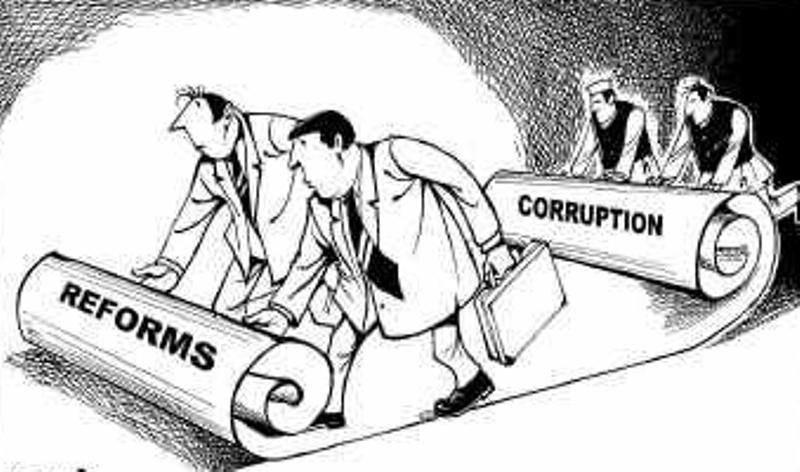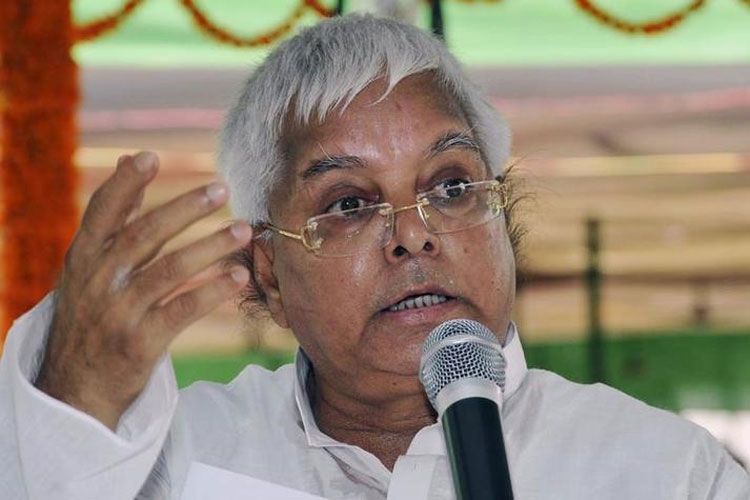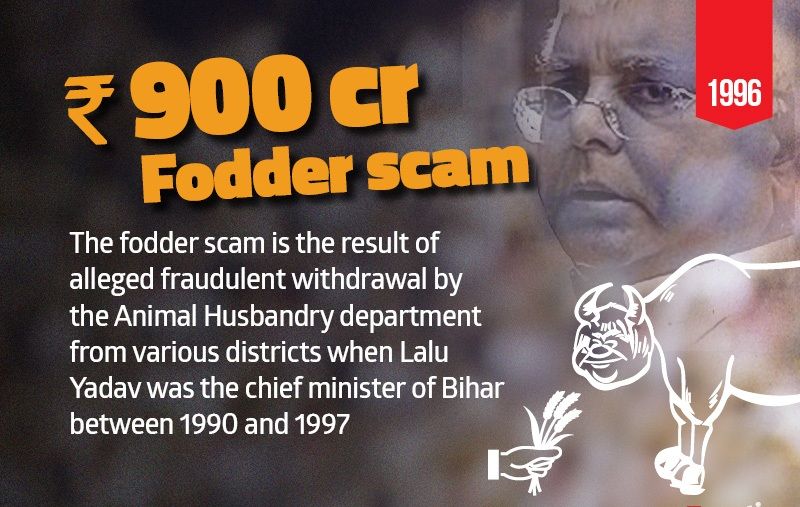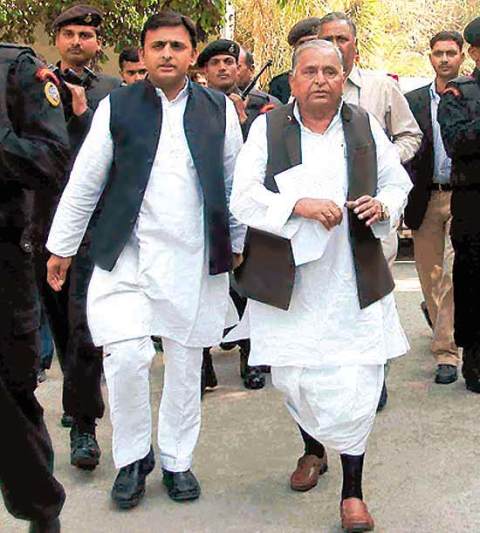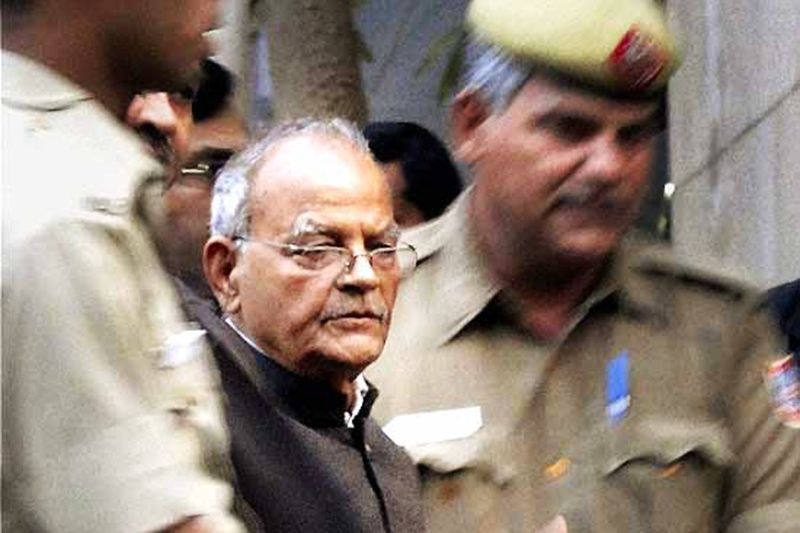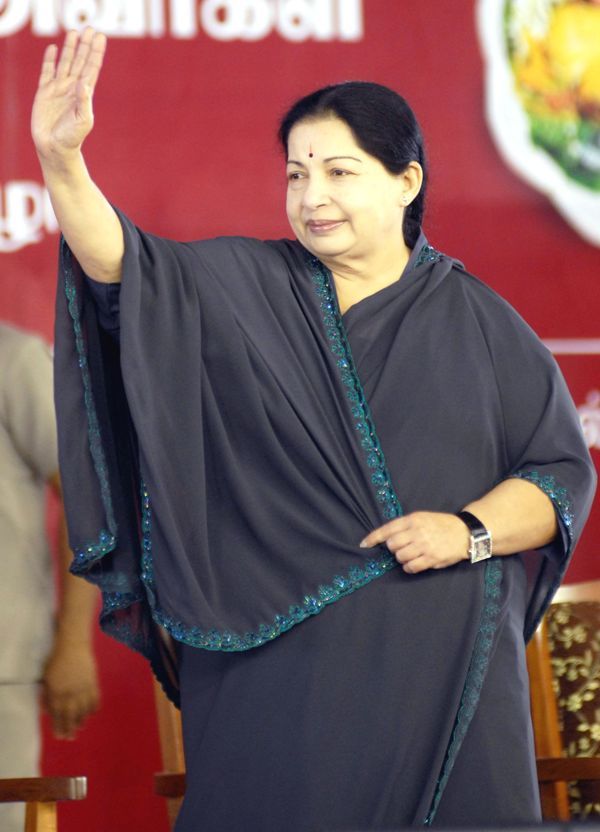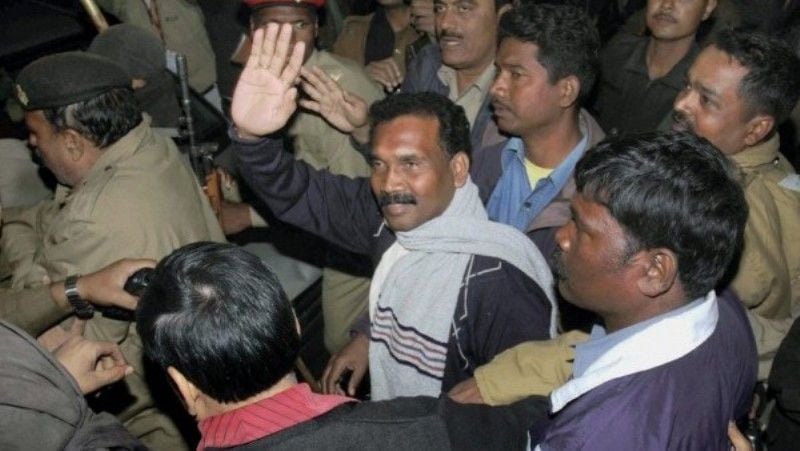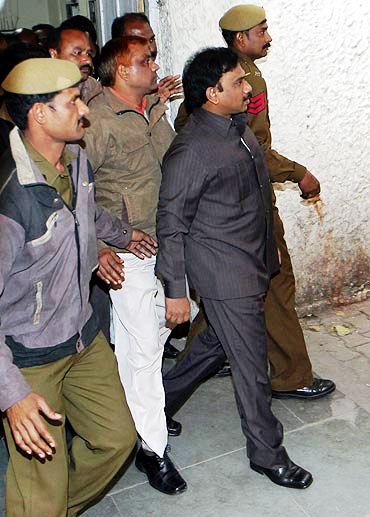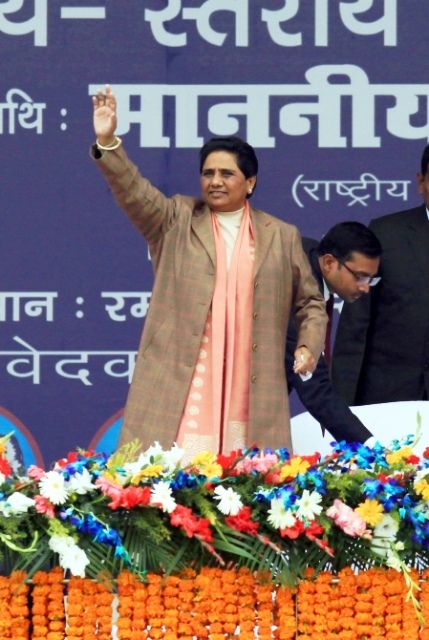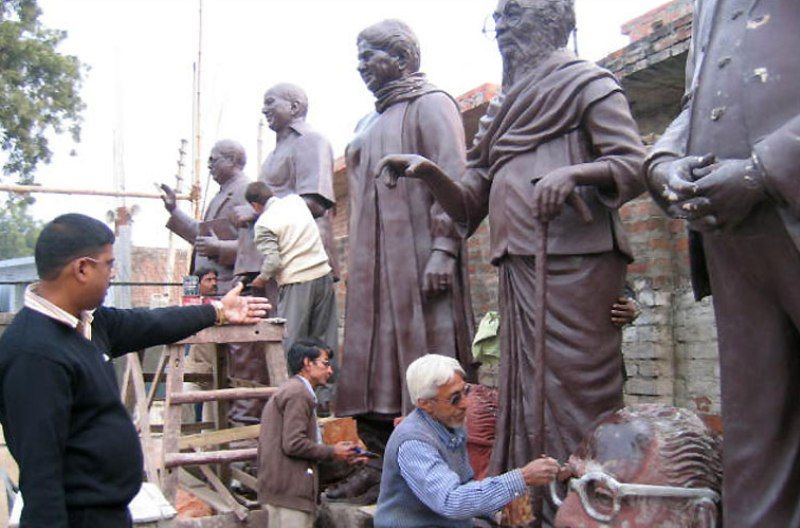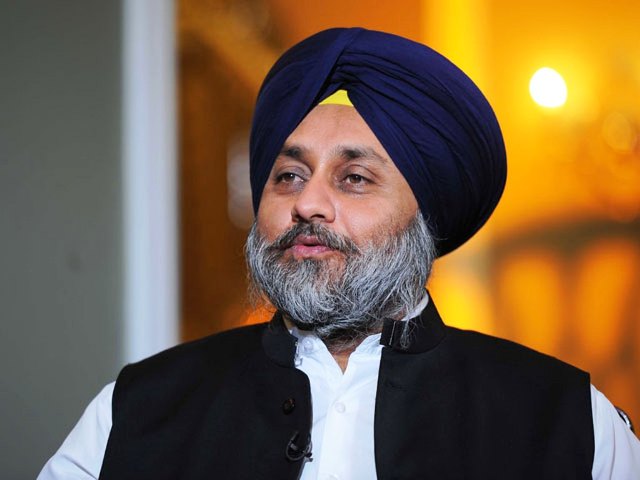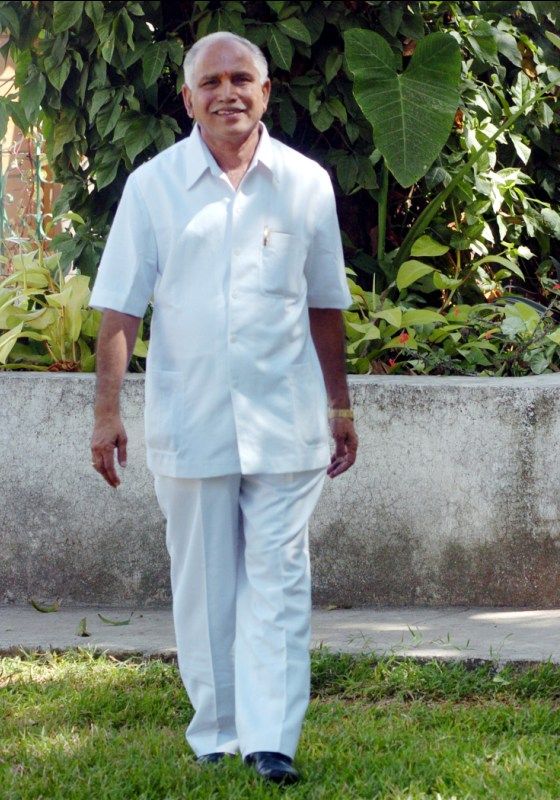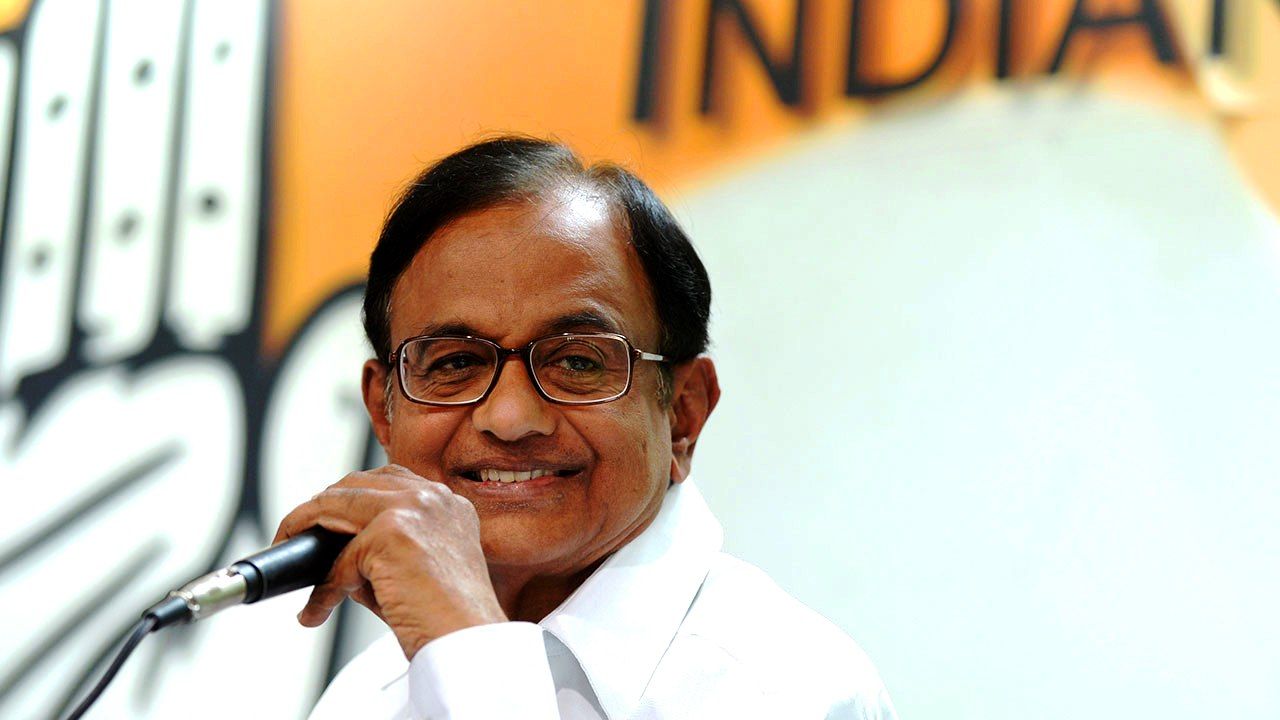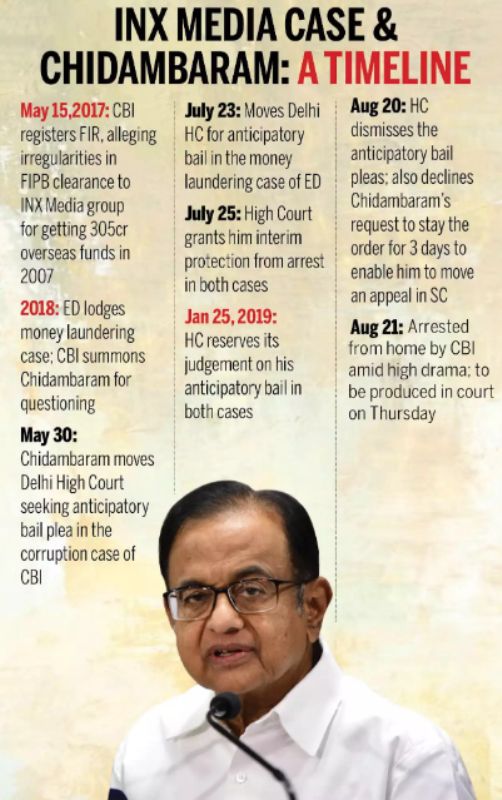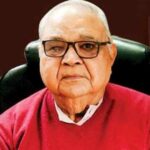List of Top 10 Corrupt Politicians in India
Termed as the world’s largest democracy, India is also the world’s second-fastest-growing economy after China. However, since independence, the road of India’s development has been dotted with many potholes called “corruption.” Political parties are perceived to be the most corrupt institution by Indians, according to the 2009 Global Corruption Barometer. The Barometer, a global public opinion survey, released by Transparency International, found that 58% of Indian respondents identified politicians to be single most corrupt individuals. Although there is a never-ending list of corrupt politicians in India, here we have listed only the ten such corrupt politicians who have been in the news for being involved in one or more instances of corruption.
1. Lalu Prasad Yadav
Lalu Prasad Yadav is the foremost example of corruption, nepotism, and dynastic politics in India. He ruled over Bihar as its Chief Minister for almost 15 years, a period during which every economic and social ranking of the state went to the lowest level when compared to other states of India. During his tenure as the Chief Minister of Bihar, the state earned the tag of “Jungle Raj.” The best example of his Jungle Raj can be taken from the event of his daughter’s wedding in 2002 when his supporters lifted cars, furniture from showrooms in Patna to be used at the wedding. [1]India Today His involvement in corruption can be discussed under the following headings:
Fodder Scam (1996)
Fodder scam has several cases, in which Lalu Prasad Yadav is an accused in 6 cases. In 2013, he was convicted in the first case of the 1996 Fodder Scam in which Rs. 33.61 crores were scammed from the Chaibasa treasury. In 2017, he was convicted in the second case of Fodder Scam in which Rs. 89.27 lakh were scammed from the Deoghar treasury. In 2018, he was convicted in the third case of Fodder Scam in which Rs. 35.62 crores were scammed from the Chaibasa treasury. The same year, he was convicted in the fourth case of Fodder Scam in which Rs. 3.97 crores were scammed from the Dumka treasury. The fifth case of Fodder Scam in which Rs. 184 crores were scammed from the Doranda treasury is still pending in the court. [2]The Economic Times
Disproportionate Assets Case (1998)
In 1998, a disproportionate assets case was registered against Lalu Prasad Yadav and his wife Rabri Devi. In 2000, Mr. Yadav was remanded for 11 days and sent to the Beur Jail, while Rabri Devi got bail due to being the CM of Bihar at that time. Later in 2010, Lalu Yadav won the case in the Supreme Court of India. [3]Frontline
Indian Railway Tender Scam (2005)
In 2005, the CBI investigated the Indian Railway Tender Scam and booked Lalu Yadav and his family for receiving bribes to award the Railway tender during Lalu’s tenure as Railway Minister. [4]Times of India
Patna Zoo Soil Scam (2017)
Lalu and his son Tej Pratap Yadav have been named in the Patna Zoo Soil Scam. The scam relates to the alleged purchase of soil worth more than Rs. 90 lakh by Sanjay Gandhi Biological Park in Patna from a firm associated with Tej Pratap Yadav without floating any tender. [5]Hindustan Times
2. Mulayam Singh Yadav
From giving shelter to Yadav Singh, the tainted Engineer-in-Chief of Noida Authority, Greater Noida Authority, and Yamuna Expressway Industrial Development Authority who was booked in a Rs. 954-crore properties scam in 2012 to spending hundreds of crores on the controversial Saifai Mahotsav, Mulayam Singh Yadav’s political career is dotted with many such cases which don’t give him the image of a clean politician. Among the many allegations against him, the most noteworthy is the disproportionate assets case in which the Congress leader Vishwanath Chaturvedi accused Mulayam Singh Yadav and his family (including his son, Akhilesh Yadav and his daughter-in-law, Dimple Yadav). Chaturvedi moved the top court in 2005 against the Yadav family. In his 2005 petition, Chaturvedi cited income tax returns and other “reliable documents” of the Yadavs’ to allege that they possessed disproportionate assets. On March 1, 2007, the top court directed the CBI to inquire into allegations and also find out whether the plea regarding the disproportionate assets was “correct or not.” A review plea against this order was dismissed in 2012. The court later dropped Dimple Yadav’s name from the list of people to be investigated as she was not holding any public office then and therefore could not be subjected to any investigation. However, in 2013, Mulayam Singh Yadav cleared of charges that he misused his office as the chief minister of Uttar Pradesh to accumulate vast amounts of wealth; citing that there was “grossly insufficient evidence” against the chief of the Samajwadi Party. [6]Hindustan Times
3. Pandit Sukh Ram
Sukh Ram was the Telecom Minister in P. V. Narasimha Rao’s cabinet. In 1996, Rs. 3.6 crores were seized by the CBI from his official residence. The cash was concealed in bags and suitcases, which Sukh Ram was alleged to have collected in connection with irregularities in awarding a telecom contract. In 2002, a Delhi court sentenced him to three years’ rigorous imprisonment. In July 2016, he was awarded a five-year imprisonment by a Delhi court in the same case. He had also been convicted in two separate corruption cases in 2002 and 2009 but remained out of jail. [7]The Hindu
4. Jayalalithaa
The actor-turned-politician, Jayalalithaa had been more in news for her lavish lifestyle than anything else. She ruled over Tamil Nadu as its Chief Minister for over fourteen years between 1991 and 2016. Three years into her tenure as the Chief Minister of Tamil Nadu for the fourth time, she was convicted in a disproportionate assets case in 2014; rendering her disqualified to hold the office; and thus, making her the first Indian chief minister (incumbent) to be disqualified. On 27 September 2014, she was sentenced to four years in jail and fined Rs. 100 crore by the Special Court in Bangalore. Jayalalithaa’s conviction in the disproportionate assets case was the outcome of a campaign against her, which was launched by Janata Party President Subramanian Swamy (now a member of Bharatiya Janata Party) on 20 August 1996 on the basis of an Income Tax Department report on her. Jayalalithaa’s close aide Sasikala Natarajan, her niece Ilavarasi, her nephew, and the chief minister’s disowned foster son Sudhakaran were also convicted. On 14 February 2017, the case against Jayalalithaa was abated; following her death on 5 December 2016. [8]Business World
5. Madhu Koda
Madhu Koda was the Chief Minister of Jharkhand from 2006 to 2008 (UPA alliance). He is the third independent legislator to become the chief minister of an Indian state after Biswanath Das in Orissa in 1971 and S. F. Khonglam in Meghalaya in 2002. Even after achieving such a rare feat, he couldn’t keep himself away from the glitches of corruption. Koda was allegedly involved in a mining scam that occurred in Jharkhand in India. The investigative agencies alleged that he took huge bribes for illegally allotting iron ore and coal mining contracts in Jharkhand when he was the chief minister of Jharkhand. Reportedly, Koda and his associates collected over Rs. 4,000 crores in the said scam. On 30 November 2009, he was arrested by the Jharkhand Police’s vigilance wing and on 31 July 2013, he was released on bail from Birsa Munda Prison in Ranchi. In a case probed by Enforcement Directorate (ED) under the provisions of The Prevention Of Money Laundering Act (PMLA), a special money-laundering court in Delhi attached Koda’s properties worth Rs. 144 crores. In December 2017, the court of justice Bharat Parashar convicted Madhu Koda and awarded him a three-year jail term and imposed a fine of Rs. 25 lakh. [9]Times of India
6. A. Raja
Andimuthu Raja, popularly known as A Raja was a member of the 15th Lok Sabha representing the Dravida Munnetra Kazhagam (DMK) from the Nilgiris constituency in Tamil Nadu. He had been elected to the house four times since 1996. His name appeared in the 2G spectrum scandal that involved the alleged corrupt sale in 2008 of telecommunications bandwidth to selected organizations at prices that understated the real market value of the asset. It all took place when Raja headed the Telecommunications and IT Ministry. The 2G spectrum scandal is often termed as the largest political corruption case in modern Indian history, amounting to around Rs. 1,766.45 billion. In the first F.I.R., which was filed by the CBI, it was claimed that the allocation was not done as per market prices. The Comptroller and Auditor General (CAG) also held Raja personally responsible for the sale of the 2G spectrum and in August 2010, the CAG submitted a piece of evidence; showing that Raja had personally signed and approved the majority of the questionable allocations. Following the allegations, Raja had to resign from the Telecommunications and IT Ministry on 14 November 2010. The CBI and ED estimated that Raja could have made as much as Rs. 30 billion from the alleged bribes. In the initial months of 2011, Raja’s houses and offices were raided by the CBI. On 2 February 2011, the CBI arrested Raja with his aide, R. K. Chandolia, and Siddharth Behura, the former telecom secretary and placed them in Tihar Jail. However, on 21 December 2017, a Delhi court acquitted all the accused, including A. Raja and Kanimozhi in the 2G spectrum allocation case and held that 2G spectrum scam never happened in the first place. [10]REUTERS
7. Mayawati
Coming from a poor family and rising to the pinnacle of politics in Uttar Pradesh, Mayawati could have become a symbol of women empowerment, but the increase in her personal wealth after becoming a powerful politician has been viewed by critics as signs of corruption. Mayawati’s corruption cases can also be discussed under the following headings:
Taj Corridor Case (2002)
In 2002, after finding financial irregularities in the Taj Heritage Corridor Project, a project started by the Uttar Pradesh Government to bring improvements in the infrastructure in the major tourist area in Agra that includes the Taj Mahal, the CBI raided twelve residences, including Mayawati’s and filed a First Information Report against her and seven others; following which she had to resign from the post of the Chief Minister of Uttar Pradesh. However, in June 2007, Governor T. V. Rajeswar said that there was insufficient evidence to prosecute her and thereafter, the Taj corridor case was effectively ended before going to trial. [11]Rediff
Disproportionate Assets Case (2007–08)
In the assessment year of 2007-08, Mayawati was ranked among the top 20 taxpayers in the country; after paying an income tax of Rs. 26 crores. Earlier, the CBI had filed a case against her for owning assets disproportionate to her known sources of income. On 13 March 2012, she declared assets worth Rs. 111.26 crores in an affidavit filed with her nomination papers for the Rajya Sabha. On 6 July 2012, a Supreme Court bench of Justice P Sathasivam and Dipak Misra quashed the disproportionate assets case against Mayawati; citing that the court found that the case was unwarranted. On 4 October 2012, a review petition was filed by Kamlesh Verma, but the Supreme Court declined his request to re-open the case on 8 August 2013. On 8 October 2013, the CBI finally closed their file against Mayawati’s Disproportionate Assets Case. [12]DNA
Statues Case
During her tenure as the Chief Minister of Uttar Pradesh, she commissioned the production and public display of several monuments having parks, galleries, museums, memorials, murals, and statues representing Buddhist and Hindu, Dalit/OBC icons like Gautama Buddha, Gadge Maharaj, Sant Ravidas, Sant Kabir, Narayana Guru, Jyotirao Phule, Chatrapati Shahuji Maharaj, Babasaheb Ambedkar, BSP party founder Kanshi Ram, and of herself. After a PIL against the expenditure on these projects, the Supreme Court issued a stay against further building on the projects in June 2009. The CAG also reported that Rs. 66 crores in excessive costs had been incurred on the construction of the memorials. Defying the Supreme Court’s stay, Mayawati inaugurated the Rashtriya Dalit Prerna Sthal and Green Garden in Noida, built at a cost of Rs. 685 crore. The Indian National Congress accused Mayawati of wasting the taxpayers’ money. In January 2012, the Election Commission of India ordered that all of the statues of Mayawati, as well as the statues of elephants (the symbol of the Bahujan Samaj Party), should be covered up until after February 2012 Uttar Pradesh assembly elections. In 2015, the Supreme Court continued hearing on the PIL; however, Mayawati and her party had still not provided evidence about where the monies expended on such monuments came from. [13]Daily Mail
World Bank Criticism
The Mayawati-led government attracted criticism from the World Bank for not utilizing the funds provided by the bank for various development projects in Uttar Pradesh. In a letter of complaint to the central government of India written on 1 August 2002, the World Bank stated,
We have now learnt that project managers have been replaced within three weeks of assuming office. The project coordinator of the Diversified Agriculture Support Project has been changed twice in quick succession and at the moment there is no project coordinator. In the forestry project, numerous changes have been made over the past six months … Such developments do not augur well for these time-bound projects that require consistently good leadership.”
8. Sukhbir Singh Badal
Sukhbir Singh Badal is the head of Shiromani Akali Dal and the son of Parkash Singh Badal, former Chief Minister of Punjab. The Badal Family has often been in news in various disproportionate assets cases. In November 2003, the Vigilance Bureau filed a challan in the corruption case against Sukhbir Singh Badal and his father Prakash Singh Badal in the district court of Ropar. A case of corruption, forgery, and cheating was registered against them by the Vigilance Bureau in June 2003 in connection with the disproportionate assets allegedly accumulated by the Badal family. The total property attributed to the Badal family in the challan was pegged at Rs. 4326 crores, out of which Rs. 501 crore worth of property had been found in India and property worth Rs. 3825 crore was indicated to be in the possession of the Badal family overseas. On 1 December 2003, the Ropar special court judge S.K. Goyal sent Prakash Singh Badal and his son Sukhbir to judicial custody till December 13 in a Rs. 78-crore disproportionate assets case. [14]Times of India
9. B. S. Yediyurappa
When B. S. Yediyurappa became the 25th Chief Minister of Karnataka on 12 November 2007, it was a first for the BJP in a South Indian state. However, he could not keep himself away from being engulfed in the game of corruption. On the evening of 15 October 2011, he was arrested after the Lokayukta court issued an arrest warrant in two cases of corruption for illegally denotifying land in and around Bangalore. After spending 23 days in jail, he was granted bail on 8 November 2011. However, the High Court of Karnataka quashed the FIR registered against him regarding the Mining in March 2012. In May 2012, the Supreme Court temporarily stayed the case on this matter and ordered an official CBI inquiry, to be completed within three months. On 25 July 2012, the Karnataka High Court granted anticipatory bail to Yediyurappa in a case relating to alleged irregularities in the de-notification of government land in 2009. [15]NDTV
10. P. Chidambaram
P. Chidambaram is an Indian politician of the Indian National Congress who has served many key ministries in the Government of India, including the Ministry of Finance and the Ministry of Home Affairs. The first time he came under the radar of investigative agencies was in 1997 when the CAG condemned his Voluntary Disclosure of Income Scheme (VDIS) that he announced when he was Finance Minister with the United Front government; terming it abusive because of the loopholes that made it possible to fudge data to the financial advantage of the confessor. [16]The Sunday Guardian
INX Media, Aircel-Maxis Case
In 2006, Subramanian Swamy said that a company controlled by P. Chidambaram’s son Karti Chidambaram received a 5% share of Aircel to get part of Rs. 40 billion paid by Maxis Communications for the 74% share of Aircel. Swamy accused Chidambaram of withholding Foreign Investment Promotion Board clearance of the deal until his son received the 5% share in Siva’s company. Following this, the issue was raised in the parliament by the opposition several times, demanding Chidambaram’s resignation. [17]Outlook It was also alleged that his son, Karti was a direct beneficiary of the 2G spectrum case. The information of wide-scale corruption by his son Karti Chidambaram and Robert Vadra, with the help of P. Chidambaram’s position, have been covered by the media extensively. On 20 August 2019, the anticipatory bail pleas filed by P. Chidambaram were dismissed by the Delhi High Court. He was later arrested by the CBI and ED at his home in August 2019. He is presently in Tihar Jail. [18]India Today
References/Sources:

